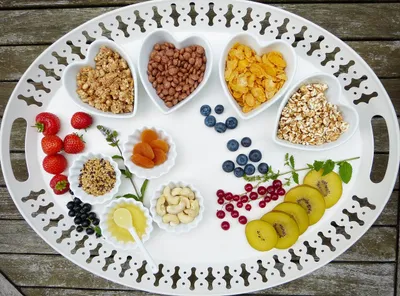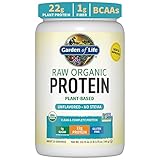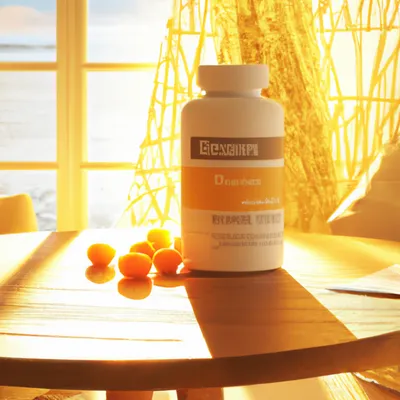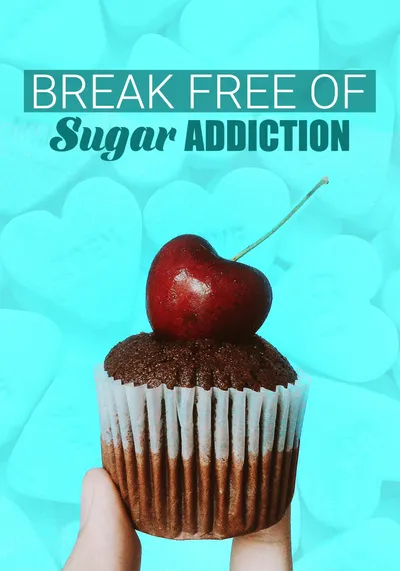Unlock the Power of Plant-Based Protein: Top 15 Sources for Optimal Health
Struggling to get enough protein without relying on animal protein?
You’re in the right place. Interest in plant protein continues to climb for improved health, easier weight management, and heart support.
The best part is that many plant sources also provide fiber, iron, magnesium, and beneficial antioxidants, offering high protein quality plus additional nutrition in every bite that supports healthy kidney function.
- CLEANER INGREDIENTS: 21g plant protein and 1g sugar per serving. Our protein blend consists of Organic pea, brown rice, and chia seeds, to provide a complete protein with all nine essential amino acids. It also features 8g of Prebiotic plus fiber for gut support and our 50 Superfoods Blend.
- HIGHER STANDARDS: We believe it’s what’s on the inside that matters most, and that includes what we left out. This product is USDA Organic, vegan, gluten-free, kosher, made without soy, and Non-GMO. You also won’t find any carrageenan, lactose or dairy ingredients, artificial colors, flavors, sweeteners, or preservatives. We also use third parties to verify that we are certified USDA Organic and plant based.
- ORGANIC 50 SUPERFOODS BLEND: Each serving contains 50 organic superfoods like chia, tumeric, kale, flax, broccoli, spinach, quinoa, beet, acai and is an excellent source of Vitamin B6, Vitamin C and iron to support your immune system.
- CUSTOMIZE ANY WAY YOU WANT: You can mix this with any liquid like water, almond milk, oat milk, or blend it to create a delicious shake or smoothie for a quick breakfast or snack drink. For even more creative ways to use this, you can add it to your overnight oats, cookies, brownies, and other baked goods for a protein and energy boost.
- PERFECT FOR ANY LIFESTYLE: This protein powder is perfect for men and women alike, whether you’re maintaining a healthy lifestyle, working out, looking to add more protein to your diet, following a diet regiment or an on the go meal replacement.
Last update on 2025-12-20 / Affiliate links / Images from Amazon Product Advertising API
What will you find here?
A quick, practical guide to the top 15 sources, from legumes and soy foods to grains, nuts, and seeds.
You’ll see which options offer complete protein or pair well to provide a full amino acid profile, along with simple ideas for incorporating them into meals.
We’ll keep it clear and valuable, so you can shop, cook, and hit your protein goals with confidence—unlocking these health benefits along the way.
Trends point the way. Research highlights legumes, such as lentils, peas, and chickpeas, along with seeds, as front-runners for sustainable eating.
The plant-based protein market is also booming, projected to reach around 20.3 billion dollars by 2025, which means more variety and better quality on store shelves.
If you like a quick visual overview before you dive in, here’s a short video to spark ideas:
Up next, we’ll rank the top 15 plant-based protein sources, share protein per serving, and note who each option suits best.
Ready to build meals that are simple, satisfying, and good for you?
Let’s get into the list.
Top Beans and Legumes Sources to Supercharge Your Plant Protein Intake

Photo by Kaboompics.com
Legumes are the backbone of a strong plant protein plan. They are affordable, shelf-stable, and easy to cook.
You get protein for muscle repair, and their polyphenols offer antioxidant support that may help reduce the risk of cancer.
Many pair well with grains to complement their amino acid profile, and soy foods like tofu provide complete protein on their own.
For a deeper primer on complete proteins, see Healthline’s guide to vegan complete protein options.
Lentils: Versatile and Nutrient-Rich Plant Protein
A cooked cup of lentils provides approximately 18 grams of protein. They support gut health, heart health, and steady fullness.
They shine in dal, veggie burgers, and hearty salads. Pair with rice or quinoa for a complete protein and amino acid profile.
Tip: Use red lentils for quick soups, green or brown for salads and stews.
- WHAT’S THE SCOOP: Build and repair muscle and reduce recovery time with 22g of complete plant based protein powder, 4g BCAAs, and 1g fiber in just 120 calories per serving for a satiating vegan protein powder
- DOWNRIGHT DELICIOUS: We’re taking a stand against chalky; Not only is this plant protein powder silky smooth, but our protein shake is delicious; Mix with water to make protein drinks or blend in smoothies
- SHAKE IT UP: Great texture and mixability all while being sugar free protein powder; Organic peas, sprouted grains, seeds, legumes plus whole food vitamins and minerals deliver nutrients you need with 1g total net carbs
- DON’T TAKE THE HEAT: Made at low temperatures, this lactose free protein powder is anything but ordinary; Scoop up enzymes like lipase, lactase and papain plus live probiotics including probiotic Bacillus subtilis DE111 for digestion and absorption
- EXTRAORDINARY STANDARD: Our organic vegan protein powder is not only delicious but is also supported by Third-Party Certifications – Certified USDA Organic, Non-GMO Project Verified, Vegan, Kosher, NSF Certified Gluten Free & NSF Contents Certified
Last update on 2025-12-20 / Affiliate links / Images from Amazon Product Advertising API
Beans: Hearty Options Like Black and Kidney for Everyday Meals
Most cooked beans provide around 15 g of protein per cup. Their polyphenols bring antioxidant support.
Build them into chili, burritos, or creamy dips. Soak dried beans and change the water before cooking to minimize gas production. Serve with brown rice or corn tortillas for a fuller amino profile.
Chickpeas: Nutty Flavor Boosters for Plant Protein
Chickpeas deliver about 15 g of protein per cooked cup. The slow-digesting carbs provide steady energy, and minerals like magnesium support bone health.
Try hummus, roasted snacks, or tomato-coconut curries.
Combine with whole-grain pita, farro, or couscous to balance amino acids. Canned chickpeas are a quick, budget-friendly choice.
Peas: Fresh and Frozen Gems for Plant Protein
Green peas offer 8 to 9 g of protein per cup. They bring vitamin C and iron to support immunity and energy.
Toss them into stir-fries, blend them into soups, or mash them with herbs as a bright side. Pair with whole-grain pasta or barley to increase amino acid intake.
Peas cook quickly, making them ideal for beginners.
Tofu: Adaptable Soy Powerhouse in Plant Protein
Tofu provides approximately 10 g of protein per 100 g and contains all the essential amino acids necessary for complete nutrition.
It has a high Protein Digestibility-Corrected Amino Acid Score, highlighting its superior nutritional value compared to other plant sources.
Many brands are calcium-set, which helps support bones. It absorbs flavor well, so marinate, then use in stir-fries, scrambles, or on the grill.
Pressing removes excess water and improves texture.
Other soy options, such as edamame and tempeh, also deliver complete protein and offer versatile uses in meals. For everyday ideas, see Mayo Clinic’s tips on eating more plant proteins.
Grains and Seeds: Nutrient-Dense Plant-Based Protein from Nature’s Bounty
Grains and seeds serve a dual purpose in a plant-based protein plan.
Quinoa provides complete amino acids, while chia and hemp deliver plant-based omega-3 fatty acids that help calm inflammation.
They pair well with breakfast, snacks, and quick bowls, and they complement legumes for added balance.
Interest in sprouted options continues to grow, driven by a desire for gentler digestion and improved nutrient uptake.
For a broader look at protein picks, see Healthline’s guide to the best protein sources for vegans and vegetarians.
Quinoa: The Complete Grain for Balanced Plant Protein
A cooked cup of quinoa provides approximately 8 grams of protein and all the essential amino acids. It is naturally gluten-free, which helps if you avoid wheat. The protein and fiber help with fullness, which can support weight loss.
Quick tips:
- Rinse quinoa before cooking to remove bitter saponins.
- Use in salads, warm grain bowls, or creamy breakfast porridge.
- Rotate broths, citrus, or herbs to keep flavors fresh.
Hemp Seeds: Omega-Rich Seeds for Easy Plant Protein
Three tablespoons of hemp hearts provide approximately 10 grams of protein.
They are rich in omega-3 and omega-6 fats, including GLA, which supports skin, heart health, and hormone balance.
The taste is light and nutty.
How to use:
- Sprinkle on yogurt, smoothies, or salads.
- Blend into pesto or dust over roasted veggies.
- Mix with cocoa and dates for quick energy bites.
For a practical overview of seed proteins, read Mass General’s spotlight on plant-based proteins.
Chia Seeds: Gel-Like Wonders Packed with Plant Protein
Two tablespoons of chia seeds offer approximately 5 g of protein, along with fiber, to support digestion.
When soaked, chia seeds form a gel that promotes hydration and steadier blood sugar levels.
Easy ideas:
- Make chia pudding with almond milk, cinnamon, and berries.
- Stir into overnight oats for extra texture.
- Press into no-bake energy bars with oats and peanut butter.
- Vega Original Protein Powder: One 32.5 oz tub of Vega Original Creamy Vanilla Protein Powder contains about 20 servings; vanilla drink mix blends seamlessly into water, milk or smoothies for a rich vanilla protein shake
- More Protein Than the Leading Protein Powder: Vega Original Creamy Vanilla Protein Powder contains 25 grams of pea protein for an excellent source of protein to help you get more protein into your day; the leading protein powder brand contains 21 grams of protein per serving
- Zero Sugar and 3 Grams of Fiber: Enjoy an added boost of protein in your smoothie or shake without adding any sugar; Vega protein powder contains 3 grams of fiber per serving for 11% of your daily value
- Clean Nutrition Protein Powder: Vega Original Creamy Vanilla Protein Powder drink mix is Non GMO, vegan, gluten free and contains no artificial flavors or preservatives
- Scoop, Shake and Enjoy: Mix up one scoop of vanilla protein powder in 12 fl oz of ice-cold water or non-dairy beverage using a shaker cup or blend one scoop into your favorite smoothie recipe
Last update on 2025-12-20 / Affiliate links / Images from Amazon Product Advertising API
Sprouted Grains: Enhanced Nutrition from Oats and Spelt
A serving of sprouted Oats or spelt provides 6 to 8 g of protein. Sprouting reduces phytates, which can improve mineral absorption for better energy and muscle function.
Many people find sprouted grains easier to digest.
Use them in:
- Breads, hot cereals, or savory pilafs.
- Grain bowls with beans and greens for complete meals.
- Choose organic options whenever possible to minimize your exposure to pesticides.
Nuts Like Almonds: Crunchy Snacks for Sustained Plant-Based Protein
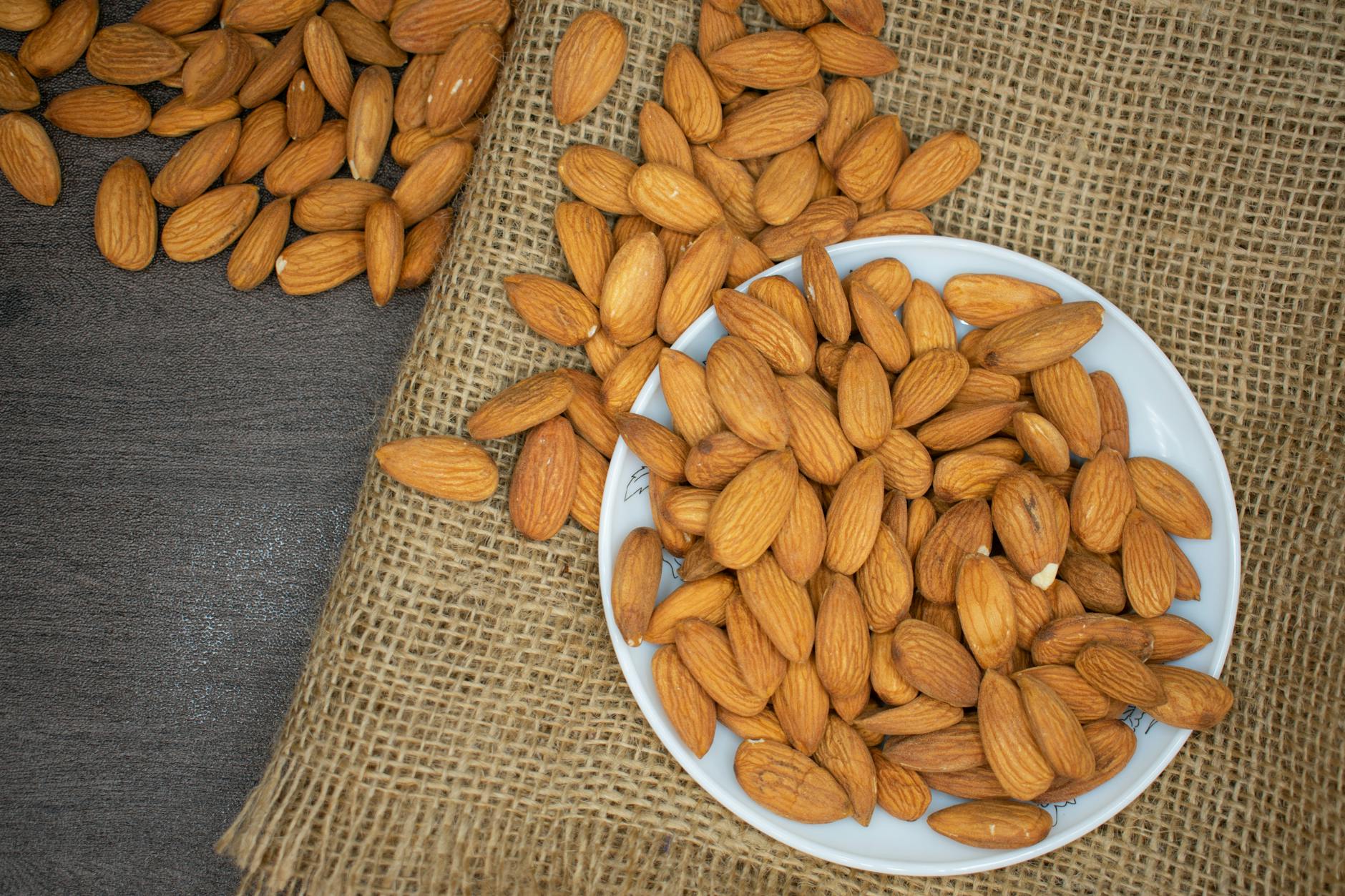
Photo by Kafeel Ahmed
One ounce of almonds contains approximately 6 grams of protein.
Monounsaturated fats support skin health, satiety, and steady energy levels.
Innovative ways to eat them:
- Portion 1 ounce (a small handful) to avoid overeating.
- Turn into almond butter for toast, smoothies, or apples.
- Add to trail mix, grain bowls, or as crunchy toppings on salads.
Mix and match these grains and seeds to avoid flavor fatigue.
Rotate textures, toast seeds for aroma, and use spices or citrus to keep every meal fresh.
Innovative Picks: Unique Ways to Get Your Plant-Based Protein Fix
Ready to upgrade your Plant-Based Protein plan beyond the usual beans and tofu?
These standouts bring muscle-friendly protein, smart convenience, and real sustainability.
They fit busy routines, support recovery, and keep meals fresh with new textures and flavors.
Seitan: Meaty Texture from Wheat for Plant Protein
Seitan packs about 25 g of protein per 100 g. It is rich in iron, and its chewy texture makes an excellent substitute for meat in stir-fries and stacked sandwiches, helping to build and maintain lean body mass.
Smart uses:
- Pan-sear with tamari and garlic for quick “beefy” strips.
- Steam, then grill for extra-firm texture in wraps.
Ethical tip: Choose organic, non-GMO wheat and brands that publish their ingredient sourcing information.
For fresh inspiration, try these high-protein ideas in easy seitan recipes.
Caution: Avoid if you have celiac disease or gluten sensitivity.
Pea Protein Isolate: Powder Power for Workouts and Plant Protein
Pea protein delivers 20 to 25 g of protein with BCAAs to support muscle protein synthesis and recovery. It is dairy-free and often allergen-friendly.
Blend into shakes, bake into muffins, or press into DIY protein bars.
How it stacks up: pea isolate rivals whey protein for muscle repair, without lactose. Learn more in this clear overview of pea protein benefits.
Quality check: select powders that have been third-party tested and feature simple ingredient lists.
Mycoprotein: Fungi-Based Option Like Quorn for Plant-Based Protein
Mycoprotein offers 15 to 20 g per serving, with high fiber for gut health and very low fat.
It cooks like chicken in nuggets and patties, ideal for quick weeknight meals.
Earth-smart choice: growing mycoprotein uses less land and water, and can cut emissions compared with animal protein.
Learn how it supports people and the planet through insights into mycoprotein sustainability.
Nutritional Yeast: Cheesy Flavor with B-Vitamin Boost in Plant Protein
Two tablespoons provide approximately 8 grams of protein, along with B vitamins, to support the immune system.
Sprinkle over popcorn, pasta, soups, or blend into cashew “cheese.”
Tips:
- Always use deactivated nutritional yeast.
- Choose fortified varieties if you want an extra source of B12.
Spirulina: Superfood Algae for Potent Plant-Based Protein
One tablespoon provides 4 g of protein, along with antioxidants that support natural detox pathways and steady energy.
Add to smoothies, matcha, or energy balls for a delicious treat.
Start small: begin with one teaspoon, as the flavor is intense.
Sourcing: Look for lab-tested spirulina that is free from heavy metals and microcystins, and favor producers with transparent water quality reports.
- Premium, Hand-Selected Ingredients: Elevate your health with Truvani plant-protein powder, crafted with premium ingredients to support a clean and vibrant lifestyle.
- Clean Formula, Free of Additives & Fillers: Experience pure nutrition with Truvani plant-based protein powder, free from artificial sweeteners, useless additives, and weird fillers.
- Certified USDA Organic: Trust in the integrity of our plant-based vegan protein powder, certified USDA Organic, non-GMO, and vegan-friendly.
- Truvani’s Commitment to Quality: Truvani supports ethical and sustainable dietary choices while meeting strict quality standards.
- Delicious Vegan Protein Shake: Elevate your daily routine with a delicious protein boost from Truvani plant protein powder.
Last update on 2025-12-20 / Affiliate links / Images from Amazon Product Advertising API
Our Conclusion
Here is the big picture.
Build your plate around plant protein from legumes like lentils, beans, chickpeas, and peas.
Add soy foods, such as tofu, and then round it out with quinoa, sprouted grains, nuts, and seeds.
For variety, fold in seitan, pea protein, mycoprotein, nutritional yeast, and spirulina.
You get steady protein, fiber for gut and heart health, and minerals that support energy and recovery.
Please keep it simple with meal prep.
Cook a pot of beans and a batch of quinoa on Sunday, then pair them throughout the week for a healthy meal option.
Combine legumes with grains for a complete profile of amino acids.
Sprinkle hemp seeds or chia on your bowls, and keep almonds or nut butter on hand for quick snacks.
Rotate flavors, use herbs and citrus, and aim for one protein anchor in every meal.
Take one small step now. Try one new source this week, then plan two easy meals around it.
Do you have a health condition or unique goals?
Talk with your doctor or a registered dietitian for personal guidance.
Your next smart move starts today, and your future self will thank you

